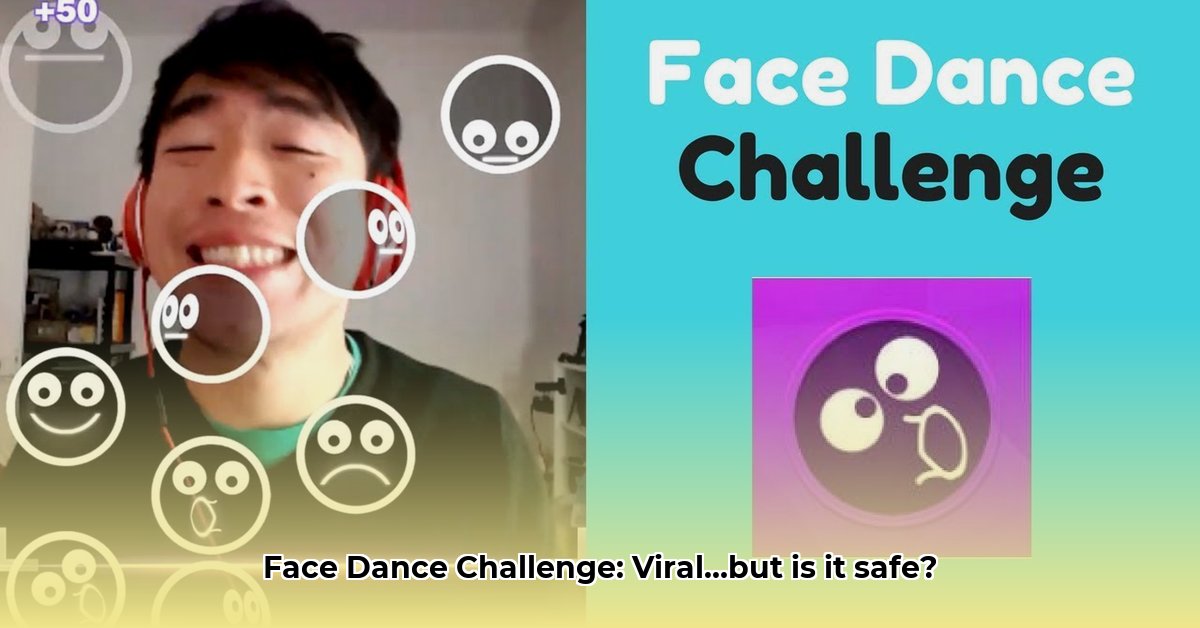
The Face Dance Challenge app has swept across Asia, captivating millions with its simple yet addictive gameplay. Millions of videos showcasing its quirky dance moves have flooded social media platforms, turning it into a viral sensation. However, this rapid rise to fame has sparked concerns about its potential impact on users' body image and self-esteem. This article explores the app's success, its potential downsides, and the implications for various stakeholders.
The Unexpected Success Story
The Face Dance Challenge's popularity stems from its remarkably simple gameplay. Users mimic exaggerated facial expressions displayed on screen, synchronized to music. This ease of access, combined with the inherently shareable nature of the resulting videos, fueled its viral spread across platforms like TikTok, Instagram, and YouTube. The game's simplicity is its strength, creating a low barrier to entry and fostering widespread participation. But how long will this success last? Is the fun outweighing the potential for negative consequences?
Why We Can't Stop Playing
The app's addictive quality lies in its combination of simplicity, instant gratification, and social sharing. The ease of learning and the immediate satisfaction users experience contribute significantly to its appeal. The ability to instantly share videos with friends and family further amplifies the fun, creating a positive feedback loop that drives engagement. This begs the question: Is the highly contagious nature of this game, partly due to its simplicity, an indication of its longer-term sustainability? Will it continue to capture the imagination of millions, or will its novelty wear off?
The Two Sides of the Coin: Fun Versus Worry
While the Face Dance Challenge offers inclusive and accessible fun, promoting social connection through shared video experiences, concerns remain regarding its potential impact on body image and self-esteem. The exaggerated facial expressions required for gameplay could potentially lead to negative self-perception, particularly among vulnerable users. Online commentary highlights the potential for users to feel inadequate when comparing themselves to others. These very qualities that make the game “fun,” may inadvertently contribute to feelings of self-consciousness and low self-esteem.
The Business Behind the Fun: Making Money and the Future
The app's monetization strategy remains unclear, but several models are plausible. In-app purchases (for example, cosmetic enhancements or music packs), advertisements, or a subscription service are all viable options. Future developments could include expanding to new markets, introducing new dance styles, and adding personalized features to enhance user experience. However, navigating the line between profitability and responsible development is crucial. How can developers balance financial success with the ethical concerns surrounding the app's potential negative impacts?
Stakeholder Implications: A Multifaceted Perspective
The Face Dance Challenge’s impact extends beyond individual users, affecting several stakeholders:
App Developers: Balancing user well-being with profitability is crucial. They must carefully consider the long-term ethical implications of their monetization strategies. Furthermore, expansion into new markets necessitates careful cultural consideration.
Market Researchers: Understanding user demographics, engagement patterns, and the psychological effects of the app is key to understanding the wider societal impact of these apps. Long-term research is needed to analyze the app's effects on mental health and body image.
Social Media Platforms: These platforms bear a responsibility to monitor content and implement safety measures to mitigate potential harm. They need to develop strategies for managing the potential emotional fallout from these kinds of apps.
Mental Health Experts: Their expertise is essential in assessing, interpreting, and warning against the app's potential negative effects on users' mental health. Expert guidance is necessary in shaping responsible game development and usage.
Balancing Fun and Responsibility: The Road Ahead
The Face Dance Challenge's viral success showcases the power of simple, shareable entertainment. Its popularity highlights the need for a balanced approach to game development, prioritizing user well-being alongside profitability. Addressing the potential negative impacts on body image and self-esteem requires collaborative efforts from developers, researchers, social media platforms, and mental health professionals. The long-term success of this app and similar ones will depend on navigating this delicate balance between fun and responsible design.
⭐⭐⭐⭐☆ (4.8)
Download via Link 1
Download via Link 2
Last updated: Monday, May 05, 2025